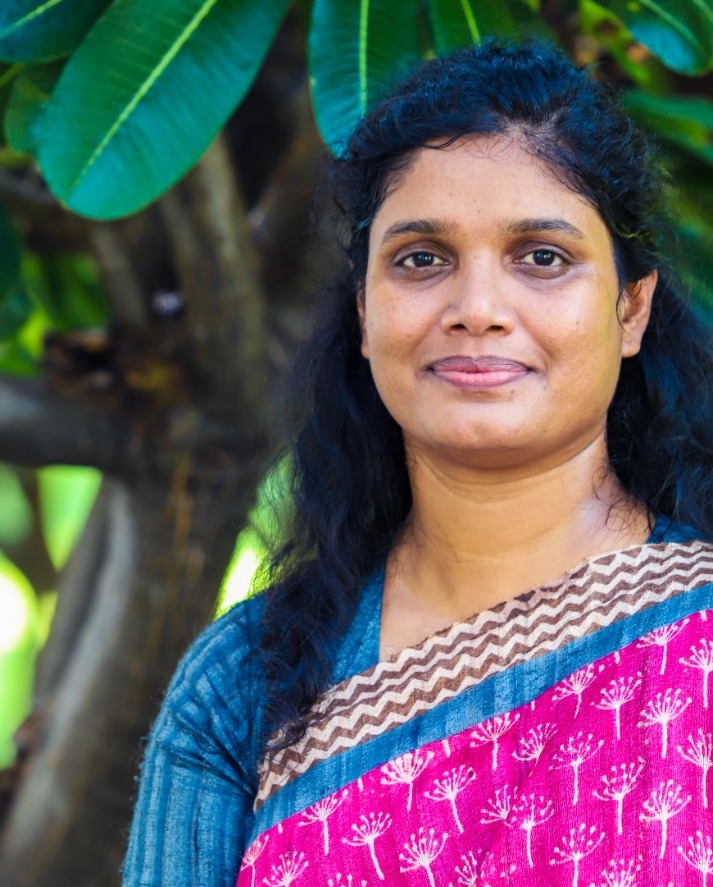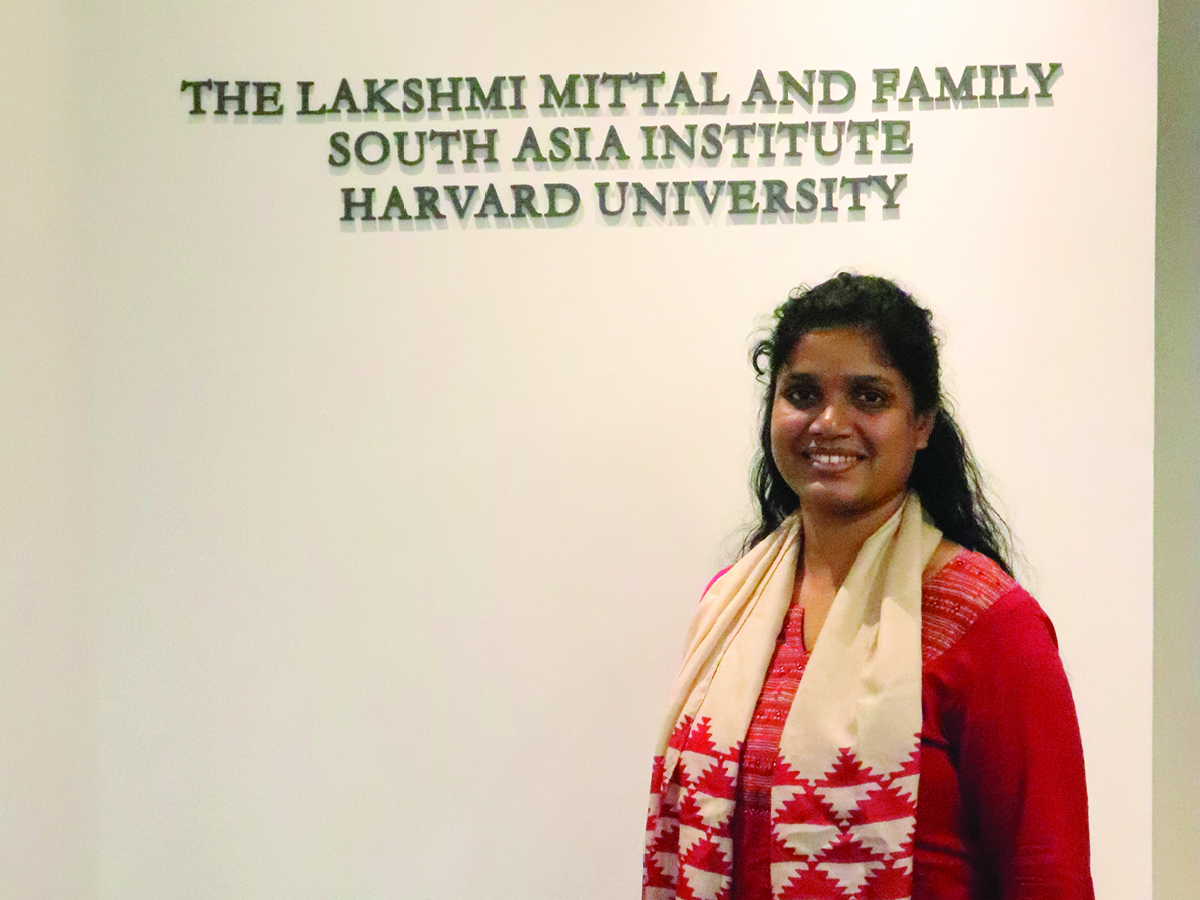Last year, the Mittal Institute launched a new India Fellowship, based at our New Delhi Office, to provide exceptional scholars in the region with an opportunity to be mentored by a Harvard faculty and access the University’s vast resources while being based in India. Annie Rachel Royson joins the Mittal Institute as the second class of India Fellows.
During the fellowship, Annie aims to explore key works of translation from colonial South Asia to explore the critical relationship between translation, geography, sacredness, and memory. Annie’s research project will provide a South Asian perspective to the current ‘spatial turn’ in translation studies and will explore the links between translation, landscapes, and memory in the context of colonialism in the region.
We spoke with Annie about her plans and research. Annie’s mentor during her fellowship will be Vidyan Ravinthiran in the Department of English at Harvard.

Mittal Institute: Annie, welcome to your fellowship at the Mittal Institute. Could you elaborate on your research interests?
Annie Rachel Royson: Thank you! I am delighted to be here as an India Fellow and am excited for the year ahead. I work in the area of literature and my research interests are translation, South Asian literature, religious studies, travel writing, and memory studies. South Asia being a multilingual region offers many spaces for studying translation and its critical relationship with the socio-cultural realities of the region. Using translation as a critical lens is an excellent way of studying the complex cultural fabric of South Asia. My research focuses on South Asian literary texts and translations, specifically sacred texts and their landscapes.
Using translation as a critical lens is an excellent way of studying the complex cultural fabric of South Asia.
Mittal Institute: Could you give us a brief overview of the research topic that you will be pursuing over the course of your fellowship at the Mittal institute?
Annie Rachel Royson: During this year I will study the relationship between translation, geography, sacredness, and memory through an archival and literary exploration of Marathi texts from the 19th and early 20th centuries. The 19th century is notable for a large volume of translations between South Asian and European languages. Sacred-text translations from the colonial period are key sites for understanding the development of South Asia as a region, and for unravelling the complexities of translation, geography, and cultural memory. In an attempt to uncover the ties between sacredness, geography, and memory as represented in literary landscapes, I will examine two Marathi works, Yatrik Kraman (1841) and Khristayana (1919). I hope that this will also lead to an understanding of the role of translation in repainting literary landscapes and the ecological implications of the translation of sacred texts.


Annie Rachel Royson is welcomed to her fellowship by LMSAI’s New Delhi office community (left); Annie poses in the LMSAI New Delhi office (right).
Mittal Institute: Could you describe the work you were involved with prior to commencing this fellowship?
Annie Rachel Royson: Before joining the Mittal Institute, I taught literature and language at the School of Liberal Studies, Pandit Deendayal Energy University, Gujarat. I hold a PhD from the Indian Institute of Technology Gandhinagar. My research based on my doctoral work – a study of a 17th-century text, Kristapurana – was published by Routledge in January 2023.
Mittal Institute: How will your alignment with the Mittal Institute benefit your research?
Annie Rachel Royson: The Mittal Institute provides access to Harvard library resources, and dialogues with some of the most important voices in literature, South Asian studies, and religious studies. These intersections are a perfect fit for my research, and I hope to learn as well as contribute to the dialogue.
Mittal Institute: What are you most excited about for your year at LMSAI?
Annie Rachel Royson: I am excited about the conversations with my mentor and fine tuning my research and ideas. I look forward to dialogue with my peers and to participating in the activities here. I am excited to learn, write, and conduct events to generate serious dialogue on my research area. Lastly, I am excited to explore the city and its landscapes.
